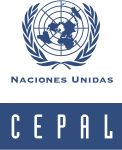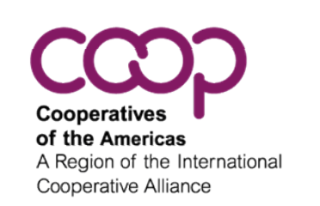NJF
Natalia Julieta Fenizi
Ministerio de Desarrollo Humano, Gobiernos Locales y Mujeres
Secretaria de Género
https://twitter.com/nataliafenizi
https://www.linkedin.com/in/nataliafenizi
component bloc not found
Natalia Fenizi is a Trainer and Strategic Consultant for sustainable development with a gender perspective and human rights approach for more than two decades: she has coordinated social-community development programs (1997 - 2000 PIFATACS UNLP, Argentina), International Development Cooperation (2002-2011, Latin America - European Union: Spain and Italy); Institutional Strengthening, Training and Technical Assistance to the Productive Sectors through Economic Development Agencies (2000-2006 Ministry of Economy Río Negro-CFI, Argentina).
She has lived in Argentina since 2014, although she alternates her residence due to international development cooperation projects in different parts of Latin America and the European Union.
Between 2011 and 2020 she has worked in person and/or hybrid format for OECD-Leed (France), CIC (Italy), and Universidad EAFIT (Colombia), integrating the teaching team of the Diploma “Community and Local Development” - Summer School with in-person teaching headquarters in Trento, Italy. She designed the training methodology for building technical-political capacities to generate local development in terms of sustainable development goals, strengthening of cooperatives and human rights with emphasis on a gender perspective. She also coordinated in a teaching role the strategic planning and citizen participation laboratories with participants who are representatives of local, provincial, and national governments of Latin America who join each year, being more than 300. Simultaneously, as a strategic consultant, she participated in the selection and evaluation of applicants and evaluated Latin American projects.
Since 2014, residing in Villa Pehuenia, province of Neuquén, Argentina, she promoted the training weeks in Latin America (Colombia 2015, Mexico 2016, Chile 2017, Argentina 2018, Peru 2019) and events aimed at strengthening work in collaborative networks among Latin American representatives who have obtained the diploma to exchange experiences and good practices. A Compendium of some experiences is available.
An example is the valorization of ancestral practices of Indigenous Peoples such as the Maras project (community-managed salt flats declared Intangible Heritage by UNESCO) and Sacred Valley of the Incas of experiential rural tourism managed by women of Indigenous communities, both in Peru.
In the field of university extension, she teaches modules on Full Project Cycle Management, Citizen Participation, Formation of Interinstitutional Networks with a gender perspective and human rights approach in offerings such as the Diploma in Local Development and Institutional Strengthening of Cooperatives together with the pertinent national agencies.
She has held executive roles in local governments such as Secretary of Planning and Action for Territorial Development (2014-2019 in the Municipality of Villa Pehuenia, Neuquén, Argentina). She promoted the execution of the Strategic Plan of Villa Pehuenia and Moquehue and designed and implemented the current public policies on citizen participation, environment, Integral Management of Urban Solid Waste (GIRSU), climate actions, social economy, professional training, and community rural tourism. Promoting the opening of the local government, she created the space for citizen participation (EPC) still in force, in which she initiated actions to improve employability and the comprehensive health of youth. See SEDRONAR Report, page 110.
She has promoted the Territorial Planning of Moquehue, gender equity, the eradication of gender-based violence and especially interculturality through the participatory construction of the shared development agenda with the Mapuche Catalán community. She managed the scholarship for Lonko Ramon Quidulef of the community to participate in the Local Development Diploma in Italy in 2016. She had already promoted the participation of the mayor of Villa Pehuenia in 2015 so that a political environment of openness could be generated by learning about experiences in Italy.
She has developed local and regional government plans (2015-2019 and 2019-2023) within the framework of the 2030 Agenda.
She has promoted, managed and coordinated the financing for strategic infrastructure of the locality: Tourist Pier and Coastal Promenade with the IDB, Piñoncitos Kindergarten with the Nation, signage and internal street nameplates with the BPN, Integral Project of Open-Air Shopping Center and trails that connect the shopping center with the civic center with the IDB, computer equipment for the Maestro Galeano Popular Library with the Nation, the Firefighters' building, sports courts, the Physical Activity Hall through the province, and the containers and the GIRSU truck with the Ministry of Environment of the Nation, among others.
Since 2019, in the role of Pedagogical Advisor and since 2023 as Deputy Director of the Provincial Center for Secondary Education 90 of the Provincial Council of Education, she has generated educational projects linked to territorial issues for adolescents and youth such as the 1st edition of the Professionalizing Pedagogical Practices and coordinated the institutional articulation to strengthen the Mapuche language and culture, also being a Professor of Citizenship Construction.
She is Technical Advisor to the Atlántica and Rethinking Sustainable Development Foundations and co-founder of the consulting firms Laboratorios de Territorios Inteligentes, Mixtisque and Metamujer: organizations and online training platforms, technical assistance and international development cooperation projects within the framework of the UN 2030 Agenda.
Between 2020 and 2023 as a consultant for the World Bank she coordinated in the Ministry of Production and Industry of the province of Neuquén the execution of the Provincial Bovine Livestock Plan 2020-2030 within the framework of external financing, which implies the coordination of professional teams in different areas of the province for the implementation of Good Practices monitoring the achievement of goals and specific results.
Since December 2023 she has been Secretary of Gender in the Ministry of Human Development, Local Governments and Women in which she has built in a participatory manner and leads the execution process of the Provincial Gender Equity Plan.
In terms of certifications she has the following academic degrees:
Graduate and Professor in Educational Sciences (National University of La Plata, Argentina, 2000).
Graduate in Pedagogy (Autonomous University of Barcelona, Spain, 2005)
Facilitator of Associative Processes accredited by GTZ German Cooperation Agency (Germany, 2002).
Master’s Degree in Strategic Management of Organizations (MBA) in 2009 with a grade of 9 in the thesis “Influence of Emotions in Negotiations” at the Autonomous University of Barcelona, Spain.
Specialist in Participatory and Sustainable Territorial Development Management from the Bruno Kessler Research Institute (in 2011 in Italy).
Diploma in Local Development and Communities from the OECD–EAFIT University (Italy-Colombia, 2011) in which she later served as a teacher.
She also holds postgraduate certificates in topics related to sustainable development with a human rights approach with emphasis on a gender perspective.
component bloc not found
component bloc not found
Loading





